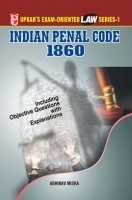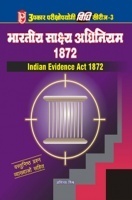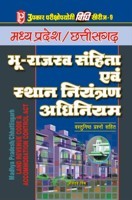About The Book Strengthening Governance Through Access To Justice
Book Summary:
This book tries to reunite and rebuild faith in public institutions by highlighting the availability of judicial remedies for the poor and the excluded in South Asia. The central idea of this book is the inevitable link between judicial capacity and good governance. It critically discusses the state of access to justice to the poor and addresses the problems of various structures and procedures approached by the poor to seek justice. The formal system remains locked in the whimsical fantasies of the lawyers and the state structure which aborts the rule of law for the privileged and works in open defiance of the increasing disempowerment of the poor due to an overwhelming judiciary.
This book highlights the growing need for restorative justice as against retributive and thus emphasizes a more intensive action research in alternative dispute resolution systems (ADRs). This argument is further developed to assess the competence of many peoples led informal institutions of judiciary such as Saalish in Bangladesh, Jirgas in Pakistan or Lok Adalats in India. The book is also radical in its approach towards the use of alternative dispute resolution systems to support marginalized communities, including women in distress, through mediation and arbitration which are gaining a new intellectual space in justice discourse.
This book is an indispensable guide to administrators, and social scientists interested in governance and legal research. It would also be useful for those working in the non-state sector of pro-poor reforms.
Table of Contents:
contents
Preface About the Editors About the Contributors
INTRODUCTION, Amita Singh
Section I: JUST SPACE FOR THE POOR IN JUDICIAL SYSTEMS
1. GRAM ADALAT IN BANGLADESH: Theory and Practice, M. Abdul Wahhab
2. PANCHAYATS AND JIRGHAS (LOK ADALATS): Alternative Dispute Resolution System in Pakistan, Irum Ahsan
3. LOK ADALATS AND JUDICIAL REFORM IN INDIA, Archana Agarwal
4. FORMAL PERCEPTIONS OF INFORMAL JUSTICE: Village Councils and Access to Justice, Kripa Ananth Pur, Anirudh Krishna
5. POVERTY AND ACCESS TO JUSTICE: Dimensions of Public Interest Litigation, Anindita Pujari
6. REVITALIZING JUDICIARY: Enhancing Access to the Poor, Pallavi Bahar
7. JUSTICE WITHOUT LAWYERS: Getting Ideas from China, Xiong Ying
Section II: PROCEDURAL FAIRNESS AND RESTORATIVE JUSTICE
8. GENDER, VIOLENCE AND POWER: Retributive versus Restorative Justice in South Asia, Ferdous Jahan
9. ALTERNATIVES TO THE JUDICIAL MESS: Suggesting Mediation, Dale Bagshaw
10. ISSUES OF EQUITY AND JUSTICE IN CLIMATE CHANGE: A South Asian Perspective, Angela Williams
11. JUDICIAL INTERVENTION FOR THE ENVIRONMENTALLY DISTRESSED IN PAKISTAN, Saima Amin Khawaja
12. ELUSIVE JUSTICE DENIAL FRAME FOR THE TRIBAL POOR IN INDIA, Priti Singh
13. GOVERNANCE AND JUSTICE: Challenge of Weaving the Severed Bond in South Asia, Justice Nasir Aslam Zahid


















